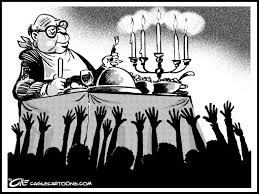
This morning on Morning Joe I heard GOP presidential candidate Chris Christie harrumph that inflation will cost Joe Biden his presidency, just like it cost Jimmy Carter his. Who knows whether former Gov. Christie is right, but his assertion underscores an indisputable fact: Inflation can bring down governments. People become uneasy — angry even — with steadily rising prices, especially for essentials like food, gasoline, and rent and mortgage payments.
It got me thinking about inflation.
Let’s start with an illustration. You’re a shopkeeper. You sell one product — eggs. You have no employees. Your only costs are your electric bill and rent for your store. You sell 100 dozen eggs each week at $5.00 per dozen, so your gross revenue each week is $500, $2,000 per month. Your cost for a dozen eggs is $2.50, so your gross profit is $1,000 per month. After expenses of $150 (rent is $100; electricity is $50) you earn a net profit of $850 per month. That makes you a successful egg merchant with a steady profit.
Then one day Farmer Bubba stops by and announces that the price he charges you for eggs is rising by $0.50 per dozen, to $3.00. It’s because his hen house workers need a raise, he says, and he’s merely passing along, dollar for dollar, his increased costs. Now you have a choice to make. You can raise the price you charge customers for eggs to $5.50, passing along to them the cost of Bubba’s rising wages. Or, you can absorb the increase — keeping your $5.00 price the same. But that would mean reducing your net monthly income from $850 to $650.
So you pass along the cost increase to your customers to protect your $850 net monthly income, and your customers experience price inflation of 10 percent for a dozen eggs, caused by rising wages. This is called wage-price inflation. And to listen to the national media, we all experienced this when retail prices increased month after month. (And the pain still isn’t over.) Wages are rising and pushing prices up; prices won’t stabilize until wages level out. That is the message we hear.
But is this all — or even the major part — of what propels inflation? I don’t think so, and I’m not alone.
Let’s return to our illustration.
Bubba hears on the news one morning that bubonic plague has broken out in Mongolia and threatens to spread to China, which would lead to disrupted supply chains. Disrupted supply chains mean shortages of all kinds of goods, eggs included. And because of the effect of supply and demand on markets worldwide, prices for anything in short supply are sure to go through the roof.
It becomes a cascading problem: The next week Bubba hears the price of chicken feed is likely to skyrocket; now he’s thinking he’d better get ahead of the problem by raising his prices. So he pays you another visit and tells you he has no choice but to charge you $0.50 more — again — for each carton of eggs he brings you. It’s disheartening news, but you understand because you hear the same stories that Bubba hears on the news. So you pass along the increase to your customers. This is called price-price inflation.
What has happened? Farmer Bubba has increased his profits by increasing his prices, but he did so before his costs actually rose. You’ve maintained your net monthly profit by increasing the price you charge customers by the same amount as Bubba’s increases to you. Your customers have absorbed two price increases on a staple — eggs. They feel helpless to do anything about it because 1) they need eggs and 2) they’ve heard the non-stop news about rampant inflation, just as you and Bubba have. So price increases at the retail level — anticipated and trumpeted in the media — follow without much pushback from consumers.
Now, what if large corporations around the world raised prices just because they could, rather than being forced to by rising costs. We would see rising corporate profits — a boon to shareholders, top executives and members of corporate boards. Well, lo and behold, a report issued recently by the Kansas City Fed says that’s exactly what’s happening. Economists there exhaustively studied the causes of inflation in 2021. Their study, published in May, concluded that inflation that year was fueled significantly by corporate profiteering. Here are two excerpts:
Inflation spiked in 2021 alongside a sharp rise in corporate profits, bringing substantial attention to the role of firms in determining inflation.
…During the first year of the average pre-pandemic recovery, corporate profits contributed more than 100 percent of overall inflation — on average, profits contributed 126 percent and costs contributed 26 percent.
|

I believe that in the first quarter of 2022 P&G increased its profit 26 0/0. The drug companies traditionally increase prices 10 0/0 per year. I was aquatinted with a former director at Blue Cross who told me with a straight face that its administrative costs were 5 0/0. He had an mba fr9m Harvard which is I think reason enough to ban them from public office. Best, Henry
Insightful as usual!
Robert teach has been preaching this also as you are probably aware.. so there are a few of you out there.
Kitty